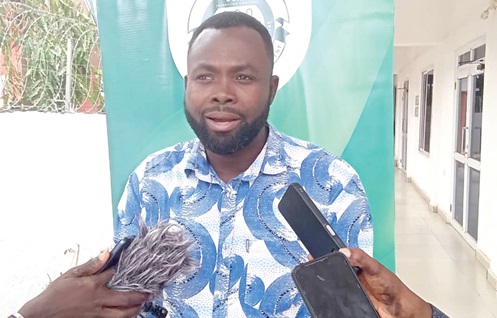
Northern Ghana resource conflicts could spark violence — Study
A study has identified that there are currently about 64 different types of natural resources conflicts across 45 communities and 19 districts in the five regions of the north.
The study conducted by the Tama Foundation Universal, a non-governmental organisation, in collaboration with the Faculty of Natural Resources and Environment of the University for Development Studies (UDS), shows that some of the conflicts have been partially resolved while others were active and had the potential to spark violent confrontations.
The findings show that 28.1 per cent of the conflicts involve gold mining; farmer-herder conflicts, 23.4 per cent; sand and gravel winning, 6.1 per cent; charcoal production, 9.4 per cent; illegal tree felling, 11 per cent, and farmland, 3.1 per cent.
The rest are encroachment on protected areas, 7.8 per cent; non-implementation of social responsibility agreements, 4.7 per cent; group hunting conflict, 1.5 per cent and competition with migrant farmers 1.5 per cent.
Overview
Giving an overview of the study report, a Senior Lecturer at the Faculty of Natural Resource and Environment at UDS, Dr Hamza Issifu, attributed the conflicts largely to factors such as land utilisation, ecological deterioration, and conflicting interests among many parties.
![]()
A section of the participants
“The Zongoyire conflict is an old case between youth of the community and a Chinese mining company, Shannxi Mining Company, then known locally as Rich Power.” “The conflict occurred because of the lack of proper community engagements and consultations prior to the company moving equipment and personnel into the area, after obtaining a prospecting licence from the Minerals Commission,” he explained.
He described the phenomenon as a serious threat to the security of the area and called for urgent measures to help resolve them. Dr Issifu also recommended the strict enforcement of the natural resources regulations and laws to ensure efficient and effective exploration of the resources for the benefit of the people.
Efficient exploration
For his part, the Executive Director of Tama Foundation Universal, Dr Chrys Anab, said the research sought to draw attention to the growing phenomenon of natural resource conflicts, which had the tendency to destabilise the security and affect efficient exploration of resources in the north.
He said the research which was funded by the Ford Foundation, formed part of the Natural Resource Accountability in northern Ghana (NaRAING) project implemented by the NGO, with the goal to promote the judicious, transparent and accountable use of mineral resources.
Writer’s email:
